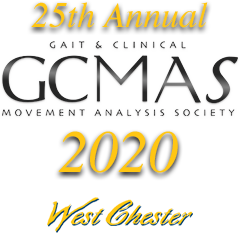
June 1-5, 2020
Breakfast Sessions
Breakfast Session 1: Evaluating Walking Activity
9-10am Tuesday, June 2, 2020
Presenter:
- Darcy Reisman, Ph.D. - University of Delaware
Objectives:
- The learner will describe the latest updates in potential treatments for improving walking activity after stroke
- The learner will identify factors that impact walking activity after stroke
- The learner will identify primary and secondary outcomes that reflect walking activity recovery after stroke
As a group, stroke survivors are more physically inactive than even the most sedentary older adults. Lack of physical activity has serious consequences in persons with stroke, including an increased risk of recurrent stroke, developing other diseases and mortality. Current rehabilitation interventions do little to improve real-world walking activity after stroke, suggesting that simply improving walking capacity is not sufficient for improving daily physical activity after stroke. Recent meta-analyses suggest that there are multiple factors influencing walking activity after stroke that likely need to be addressed to improve real-world walking in this population. This talk will review the latest evidence on factors influencing walking activity after stroke and potential interventions to address these factors.
Breakfast Session 2: Advances in Upper Extremity Motion Capture for Clinical Assessment
7-8am Thursday, June 4, 2020
Presenters:
- Jason Long, PhD - Cincinnati Children’s
- Ross Chafetz, PT, DPT, PhD, MPH - Shriners Hospital for Children - Philadelphia
- Tyler Richardson, PhD - Penn State Harrisburg
Objectives:
- Acknowledge limitations of upper extremity motion capture assessments
- Understand the proposed recommendations for upper extremity motion capture assessments
- Learn about novel upper extremity motion capture techniques and recognize the potential for integration of technology into data collections
Description:
Breakfast Session 3: Balance studies of children with cerebral palsy at the University of Delaware
7-8am Friday, June 5, 2020
Presenters:
- Jeremy Crenshaw, Ph.D. - University of Delaware
- Hendrik Reimann, Ph.D. - University of Delaware
- Ashwini Sansare, P.T. - University of Delaware
Objectives:
- To detail how cerebral palsy may alter standing balance reactions to mechanical perturbations
- To discuss mechanisms for sensorimotor control of upright balance while walking
- To characterize deficits in control of balance during walking in children with cerebral palsy and how they might be addressed using stochastic resonance stimulation